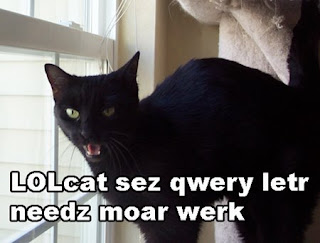Oy. Now, I'm fine, the beagle is fine, and the rottweiler is fine, but Lucille the wonder beagle got it in her head to pick a fight with the rottweiler tonight.
The rottweiler, bless his neurotic little heart, tried to run and hide, which is what he usually does, but Lucille backed him into a corner and while he was trying to escape, he somehow nicked Lucille on the muzzle with one of his massive incisors.
Really, it was a nick, not deep and not more than a quarter of an inch in length.
Have you seen that scene in
The Shining where all the blood pours down the hallway? Yeah, that's how it was. And yes, I was watching
The Shining while all this was going on. The Universe. It laughs at me.
Dark blood, I'm guessing from a vein, poured down Lucille's muzzle and pooled here and there, everywhere and anywhere as she chased the rottweiler around the room. I finally managed to grab her and clamped my hand down on the wound. She then slipped free and raced all around, rubbing her muzzle against the floor, against the wall, against the sofa... I grabbed her a second time and pressed down until the bleeding stopped. It didn't take long.
Checked the beagle for any other wounds, but she was fine, the rottweiler was OK too. A little confused but that was about it. Lucille, the whole front of her, including her legs and paws, covered in blood, started to lick herself clean, then invited the third dog in the house to go play with her. Called my little sister the vet tech and she's going to check the beagle out tomorrow, but she said it didn't sound serious, despite all the blood.
Still cleaning the house. Seriously, I expect Gil Grissom to come through the door at any moment. If you sprayed Luminol in the living room, it'd light up like a glowstick. Thankfully I have hardwood floors and the sofa's really old and is going to be tossed out soon anyways.
As it so happens, it's stunts like this that gave me the idea to put Lucille in my book as a no good beagle that doesn't do much of anything except sleep and give my main character Molly grief. Maybe for my next book I'll write a memoir titled,
Lucille and Me.
Update: Lucille is doing splendidly. She didn't need stitches, bandages or anything like that. She's now trying to convince the rottweiler to play with her and strangely enough, the rottweiler is staring at her like she's crazy and keeping his distance. I love my beagle.




